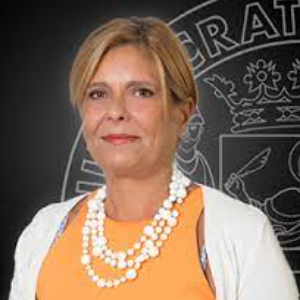Title : Bioinspired organocatalysis performed by supramolecular host molecules
Abstract:
The achievement of high performances in terms of conversion, selectivity, and safety issues are pivotal to the overwhelming majority of chemical processes. In the last decades, many efforts have been devoted to the development of new synthetic methodologies emulating the high performance of biological processes. In natural biosynthetic processes, enzymes are the natural catalysts that speed up the reactions and water is the medium where they work reaching amazing levels of efficiency, selectivity, and specificity. Water possesses many advantages as a reaction medium, besides being environmentally friendly, in comparison to commonly employed organic solvents: it is nontoxic, nonflammable, and with its high heat capacity, high polarity, large cohesive energy and hydrogen bonding abilities may have significant impact on the reaction outcome delivering unforeseen reactivities and selectivities. On the other hand, enzymes are nano-meter sized molecules with hydrophobic cores surrounded by hydrophilic shells. Inside the hydrophobic pocket substrates are confined and isolated from “bulk” water and placed in an ideal environment for its selective transformation. The synthesis of molecules operating with the same principles used by natural enzymes, artificial enzymes, is a rapidly growing field of research. One such approach is the development of supramolecular host molecules whose reactivity bears clear resemblance to that of enzymatic catalysis. Supramolecular host molecules are constituted by macrocyclic scaffolds in which an internal cavity sequesters the substrates through secondary interactions with functional groups located around the internal cavity, isolating them from the bulk medium and providing a confined reaction environment. In this way, the substrates within the host cavity not only are forced to be close to each other and isolated from the surroundings thus leading to high effective local concentration and to an increase of the reactivity, but the inclusion into a restricted space can also lead the reagent molecules to react each other with specific geometric constraints, leading to products with high regio- and stereo-selectivity. Additionally, reaction in nanoconfined spaces can exert a conformational control over the guest, can affect the stabilization of transition states and reactive intermediates of the reaction thus altering the typical reaction pathways and unlocking novel reaction outcomes to give products that are inaccessible from bulk solution.



